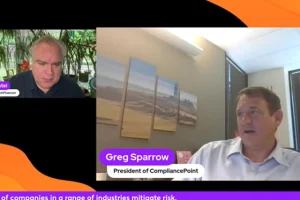The Changing Legal Telemarketing Landscape 2023: Wrapping Up Quarter 1
As we move through 2023, there have been several changes to the telemarketing landscape, ranging from proposed rule changes to enforcement actions.
The beginning of the year saw several court decisions and proposals affecting telemarketing in the United States. Here are some of the key developments:
FTC Adjusts Civil Penalty Amounts for Inflation
Beginning January 11th, 2023, the FTC has raised the maximum civil penalty it may impose from $46,517 to $50,120 per violation. This includes civil penalties imposed under the FTC’s Telemarketing Sales Rule as well as violations under the CAN-SPAM Act.
FCC Adopts Changes to Texting Rules and Proposes Updates to Lead Generation
In late February 2023, the FCC proposed new requirements for carriers to “block text messages from numbers on a reasonable Do Not Originate list” and maintain a point of contact for text senders to inquire about blocked texts. In the FCC’s Open Commission Meeting on March 16th, the requirements were finalized. Beginning March 31st, all 10DLC (standard 10-digit long) numbers associated with a company’s brand and campaigns must be registered through the business’s Campaign Service Provider if used for business-related SMS.
The FCC’s Proposed Rulemaking in February also looks to “protect consumers from getting robotexts and robocalls from multiple, unexpected callers when they provide their consent on websites for comparison shopping,” which could imply new restrictions on lead generation following the Urth Access decision in late 2022. The Urth Access Decision stated: “We find that listing more than 5,000 ‘marketing partners’ on a secondary website is not sufficient to demonstrate that the called parties consented to the calls from any of these ‘marketing partners.’” Finally, the FCC is also proposing officially expanding Do-Not-Call (DNC) protections to include marketing texts. The FCC is currently seeking public comment on the proposal. New rules regarding neither lead generation nor DNC protections have been finalized.
State Telemarketing Bills
Florida is considering amendments to its “mini-TCPA” laws. The amendments would change the bill’s language regarding automated dialing systems from “automated system” to “automatic telephone dialing system,” and the definition of such systems to change from the automated “selection or dialing of telephone numbers” to “equipment using a random or sequential number generator that 1) stores or produces telephone numbers and 2) dials the stored or produced telephone numbers.”
Additionally, Maryland, Massachusetts, and Georgia are proposing their own “mini-TCPAs”, containing many of the same calling times and attempt restrictions as in Florida’s current laws.
For more information on state telemarketing legislation, see our blog here.
In addition to new rulemaking, there have been several noteworthy enforcement actions since the start of 2023.
- FCC Issues Cease and Desist Letter to Twilio: On January 24th, the FCC published a letter to Twilio, stating, “We have determined that Twilio Inc. (Twilio) is apparently originating illegal robocall traffic on behalf of one or more of its clients. [. . .] this letter provides notice of important legal obligations and steps Twilio must take to address this apparently illegal traffic. [. . .] Failure to comply with the steps outlined in this letter may result in downstream voice service providers blocking all of Twilio’s traffic, permanently.”
- Keller Williams Settles TCPA Class Action: Keller Williams has agreed to a $40M settlement in a class action lawsuit over alleged TCPA violations. The settlement includes individuals who received two or more calls from Keller Williams on a phone number listed in the National Do Not Call Registry since May 2nd, 2014.
- Citrix Settles TCPA Class Action: On January 31st, the District of Maryland preliminarily approved a class action settlement against Citrix over TCPA violations for $2.75M. The alleged violations include automated telemarketing calls placed to consumers without gaining prior consent and also placed calls to consumers who requested to be added to the company’s internal DNC list.
Based on the legal updates and enforcement actions we’ve seen so far in 2023, it’s likely we will continue to see an increase in states adopting “mini-TCPA” legislation, which heightens the importance of staying up to date on telemarketing legislation across the U.S. We also predict further commentary from the FCC regarding SMS registration and restrictions towards business numbers, as well as new restrictions on multi-channel lead generation. In addition, as technology continues to evolve, we may see new challenges and opportunities for telemarketers. For example, 2023’s rapid advancements in artificial intelligence and voice recognition technology may lead to new ways of interacting with consumers over the phone, as well as potential legal developments for their usage.
Overall, it’s clear that the regulatory telemarketing landscape in the United States is always evolving, with new regulations, decisions, enforcements, and technological developments taking place. By staying informed and proactive, telemarketers can navigate this landscape to successfully build sustainable and compliance business practices.
CompliancePoint has helped organizations of all sizes ensure their marketing practices are compliant with all applicable laws and regulations. To learn how we can help your organization, contact us at connect@compliancepoint.com.
Finding a credible expert with the appropriate background, expertise, and credentials can be difficult. CompliancePoint is here to help.





